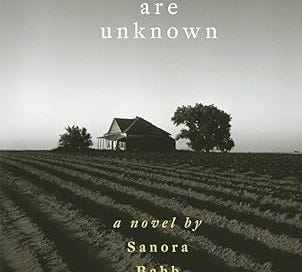Finding Lost Voices
A weekly email that brings back the voices of those who have been forgotten or misremembered.
“Use your voice.”
-Patti Smith
Welcome to my new substack email! This is my new newsletter which will contain more in-depth content about lost voices. See below for the first installment!
When I was young, I knew almost immediately that I wanted to be a writer. But while I was growing up in the 1970s and 80s in rural, Northern California, I was rarely assigned women writers to read in class. Having grown up in the West, I’ve always been drawn to writers who wrote about the West. So, when I was assigned books by Jack London, John Steinbeck, and William Stenger, I was mesmerized by how they wrote about the land on which I lived. Judging by their depictions of the West, as well as those presented in film and on television, however, someone like me, a woman, had little to do with the West, and we certainly had never received much acclaim for writing about it.
My Grandmother grew up in the panhandle of Oklahoma and she and her family were forced to leave their farm when dust storms destroyed their crops. It was a tough journey, one that would scar my grandmother with its trauma for the rest of her life. My grandmother was proud of her survival, but she didn’t want to talk about it, and she most certainly didn’t want others to tell her story for her, incorrectly.
When I was in high school, we were assigned John Steinbeck’s The Grapes of Wrath. After I read it, I rushed home to call my grandmother to tell her about it. “Grandma, did you know they wrote a book about us?” Do you know what her reaction was? She told me Steinbeck got it all wrong. She said he made her and her family look like helpless victims. She said not to mention the book ever again.
For a long time, I was confused by my grandmother’s reaction. Why was she so upset about this great author’s work? How had Steinbeck gotten it wrong? In my schooling up to that point, I had been trained to prioritize the published fictional account written by Steinbeck (a man) over my grandmother’s firsthand (and of course more accurate) real-life experience. I had no idea how right my grandmother’s reaction was.
When I first stumbled upon and read Sanora Babb’s novel, Whose Names Are Unknown a book she wrote about Dust Bowl refugees in the late 1930s while she was volunteering with the Farm Security Association that ran the camps, I was overwhelmed with emotion. I found mention of her book while I was watching Ken Burn’s award-winning documentary, The Dust Bowl where he features extensive excerpts from Babb’s notes and reports and showcases Babb’s unique knowledge about the Dust Bowl and its victims. Burns introduces Babb as someone who, like the refugees, had grown up in the affected area (No Man’s Land). Due to this, she was deeply committed to “establish a trust and respect” with the refugees “that extended both ways.” Babb was a writer who reported the human truth. As her friend, the poet Ann Sanford wrote about her work, she “represents the truth about life, even in its rough beauty.”
Soon after I finished reading Whose Names Are Unknown, I became fascinated with Babb and knew that she had to be my next biographical subject and my biography Riding Like the Wind: The Life of Sanora Babb will be published by the University of California Press, September 17, 2024.
My first biography, Charmian Kittredge London: Trailblazer, Author, Adventurer, is about Jack London’s wife, an amazing woman who’d disregarded gender norms. When I found out that she had helped write many of her husband’s novels and had never been given credit for her work, I wrote a biography about her. My biography was used as a source for a remodel of the museum at Jack London State Historic Park, housed in Charmian’s previous home, The House of Happy Walls. Now, when young girls visit the park they will be introduced to two writers: Jack London and Charmian Kittredge London. This physical representation of my work has motivated me to commit my career to unearth the stories of women who have been forgotten or misremembered. The more I learn, the more I research, the more I realize how many women have been erased.






Looking forward to the biography of Babb.
Great launch, Iris! Your friends from The Sitting Room, myself included, applaud you.